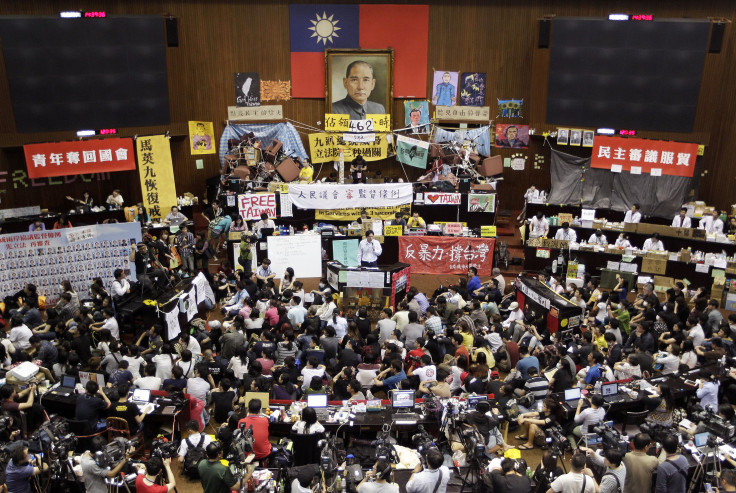Taiwan Indicts 118 People Who Participated In Last Year's Anti-China Protest

District prosecutors in Taipei, Taiwan, indicted 118 people for participating in anti-China protests in March 2014 that came to be known as the “Sunflower Movement.” The charges included instigating others to commit a crime, trespassing, obstruction of officers discharging duty, and violating the Assembly and Parade Act.
Leaders of the protest movement, which continued for three weeks, were also among those indicted, Taiwan’s Central News Agency (CNA) reported. The protesters, mostly university students, had objected to a proposal to relax trade restrictions with China, and had occupied the country's legislature and cabinet offices, as part of the demonstrations.
The legislature is yet to vote on the pact and lawmakers are working on a bill to regulate talks between the two countries, but they are not close to agreeing to the bill in its current form.
In the "Sunflower Movement" case, while most of the defendants took responsibility for their actions, some questioned how none of the police officers accused of brutality were indicted, according to CNA.
Protesters of the bill had claimed that the agreement would lead to job losses and threaten the autonomy of the self-governing island, The Associated Press (AP) reported. Relations between China and Taiwan are prickly as Taiwan has consistently rejected China's proposal of a “one country, two systems” deal similar to the one with Hong Kong.
Although China has toned down aggression toward its smaller neighbor of late, most Taiwanese prefer the current administration over seeking unification with Beijing, AP reported.
© Copyright IBTimes 2024. All rights reserved.





















